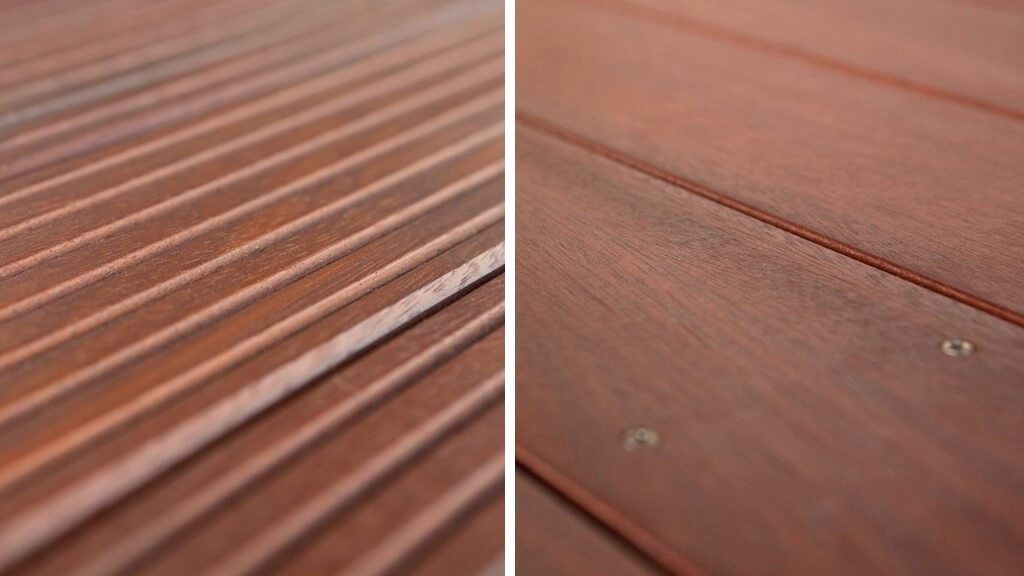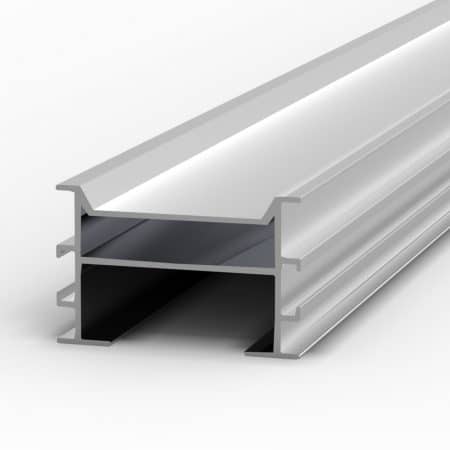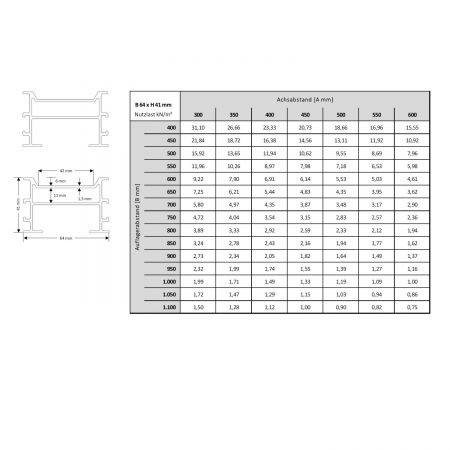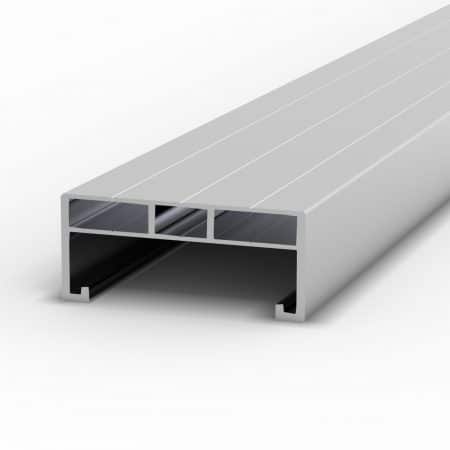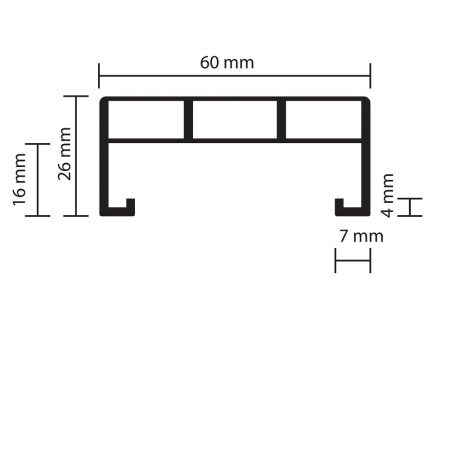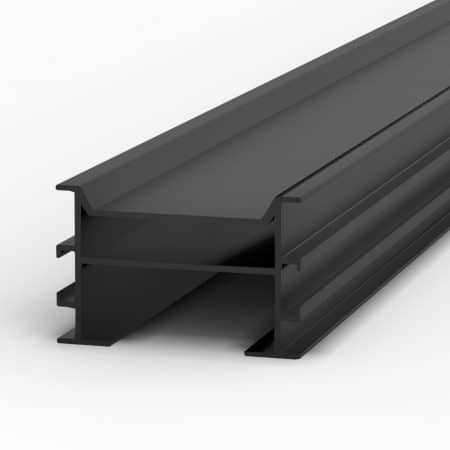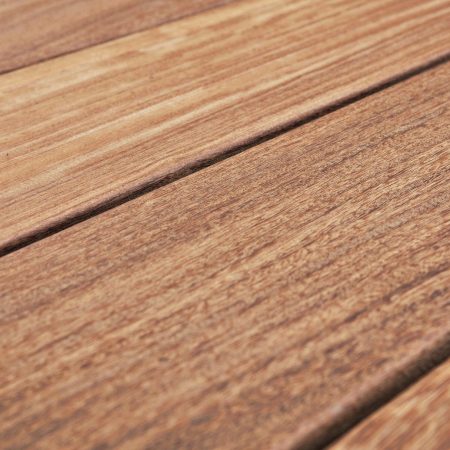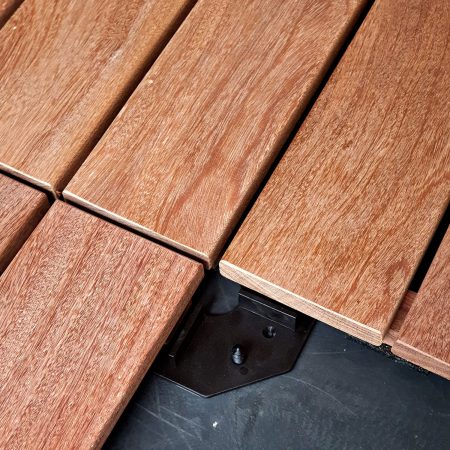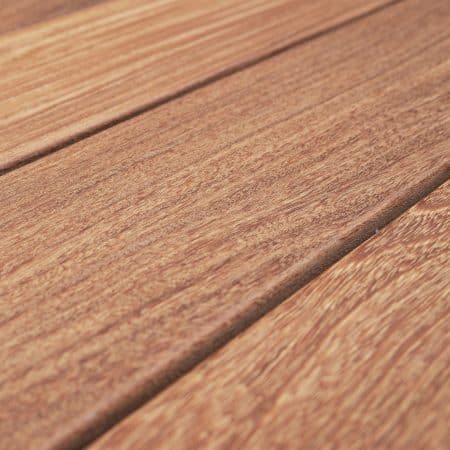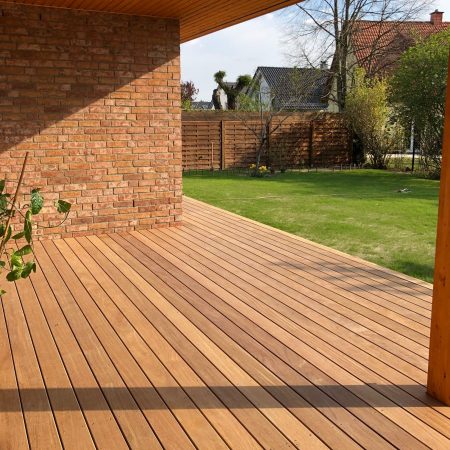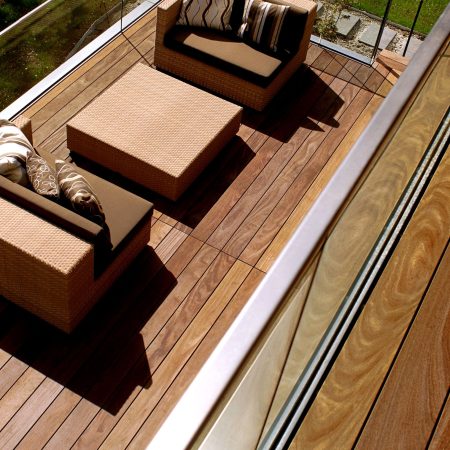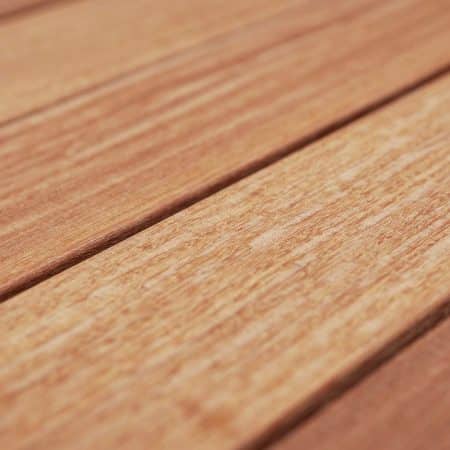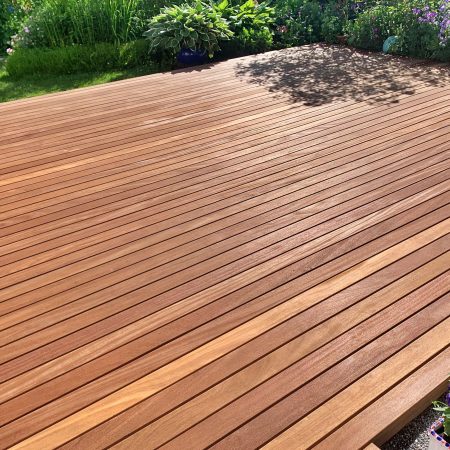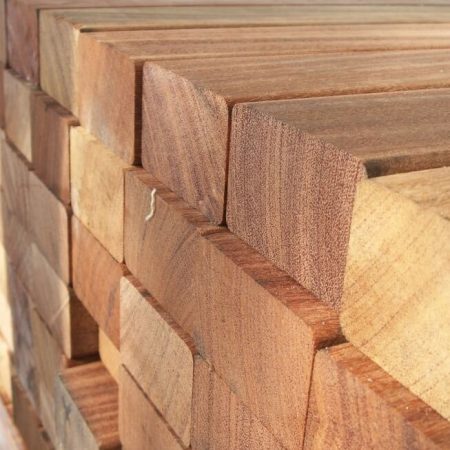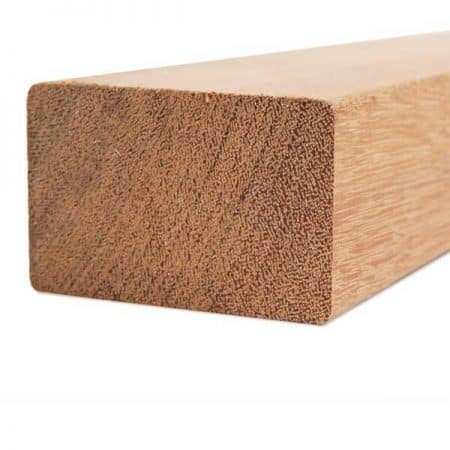Service, Decking boards
Decking boards corrugated or smooth - a comparison
RIBBED VS. SMOOTH – THE TEST
SLIP RESISTANCE
Decking boards corrugated: The greatest advantage of corrugated decking is that it is less slippery. But is a profiled decking board actually less slippery than a smooth board? We were able to determine that the plank across the profile is actually less slippery than a smoothly planed terrace plank. However, the opposite result was achieved parallel to the profiling: the corrugated decking board was significantly more slippery in this direction than the smooth variant. Terrace boards smooth: A smooth decking board seems to have slipperiness in its name. Surprisingly, however, the long-term test in this supposed parade discipline for the ribbed decking did not result in a clear winner. Depending on the laying direction, sometimes one or the other variant was less slippery after three years outdoors. One reason for this can be seen in the test result for the next category: fungal and algae infestation.In terms of slip resistance, no clear winner can be determined. Intermediate score: 1 to 1
FUNGAL AND ALGAE INFESTATION
Decking boards corrugated: After three years of rain, snow and heat, dark deposits have formed in the recesses of the corrugated decking. Since the water does not drain well in the grooves and the floorboard stays moist longer, algae, moss and fungi can quickly form here, which also make the floorboard more slippery. Terrace boards smooth: In the same test period, significantly less dirt settled on the smooth decking boards. Since the smooth decking boards dry faster and deposits cannot settle in cracks but can be run off, the smooth decking board has clear advantages in terms of fungal and algae infestation.Smooth decking boards are better protected against fungi and algae. Intermediate score: 1 to 2
DURABILITY
Decking boards corrugated: The poorer drying of the ribbed decking boards and the associated higher risk of algae and fungus formation leads to a shorter service life for the ribbed decking boards. Terrace boards smooth: In contrast to the ribbed boards, the smooth terrace boards dry better. This gives this planer variant greater durability outdoors.Faster drying means that the smooth decking boards will last longer. Intermediate score: 1 to 3
RISK OF SPLITTER
Decking boards corrugated: Wood usually splinters at its edges. The corrugation increases these critical points on the decking and increases the surface area of the wood. Terrace boards smooth: Due to their compact shape, smooth decking boards offer less surface for splinters than the corrugated competition.Fewer edges result in fewer splinters on the smooth decking boards. Intermediate score: 1 to 4
BAREFOOT FEELING
Decking boards corrugated: The corrugated decking boards have actually already lost this discipline due to their higher risk of splintering. But even if the ribbed floorboards don't splinter - it's less comfortable to walk barefoot on grooves. Terrace boards smooth: The surface of a smooth decking board simply feels better barefoot. A smooth and supple surface is therefore always preferable to the corrugated variant for pool borders and barefoot areas of a terrace.Barefoot loses the corrugation against the smooth wood. Intermediate score: 1 to 5
CARE AND CLEANING
Decking boards corrugated: Corrugated decking boards not only get dirty faster - due to the corrugation, they are also more difficult to clean. In addition, significantly more decking oil is required for corrugated wood if you want to treat the wood because the surface is larger. Terrace boards smooth: A wooden terrace made of smooth decking boards gets dirty more slowly because the dirt runs off faster than on corrugated boards. If cleaning is required, it is easier to do. The terrace oil requirement for smooth floorboards is also lower.Smooth decking boards are easier to maintain Result: 1 to 6
CONCLUSION: SMOOTH TERRACE BOARDS WIN THE COMPARISON
There is a lot that speaks for the smooth planing of a decking board. The ribbed floorboard was only able to reach a tie in terms of slip resistance. For the many technical arguments for smooth decking, see Betterwood.de only smooth decking boards. However, one important factor could not be tested - the appearance. Because that is known to be a matter of taste.ab 15,95 €
ab 11,95 €
ab 17,95 €
ab 185,00 € m²
ab 8,75 €
Cumaru decking, FSC 100%
Price from: €70 per m2, resistance class: 1
Advantages: ✓ best durability ✓ particularly robust and scratch-resistant
Disadvantages: ✗ partly rough surface ✗ high power development
Tip: Sand the floorboards after they have been exposed to the weather for the first time.
ab 11,50 €
Cumaru decking, FSC 100%
Price from: €70 per m2, resistance class: 1
Advantages: ✓ best durability ✓ particularly robust and scratch-resistant
Disadvantages: ✗ partly rough surface ✗ high power development
Tip: Sand the floorboards after they have been exposed to the weather for the first time.
ab 6,10 €
Cumaru decking, FSC 100%
Price from: €70 per m2, resistance class: 1
Advantages: ✓ best durability ✓ particularly robust and scratch-resistant
Disadvantages: ✗ partly rough surface ✗ high power development
Tip: Sand the floorboards after they have been exposed to the weather for the first time.
ab 9,55 €


